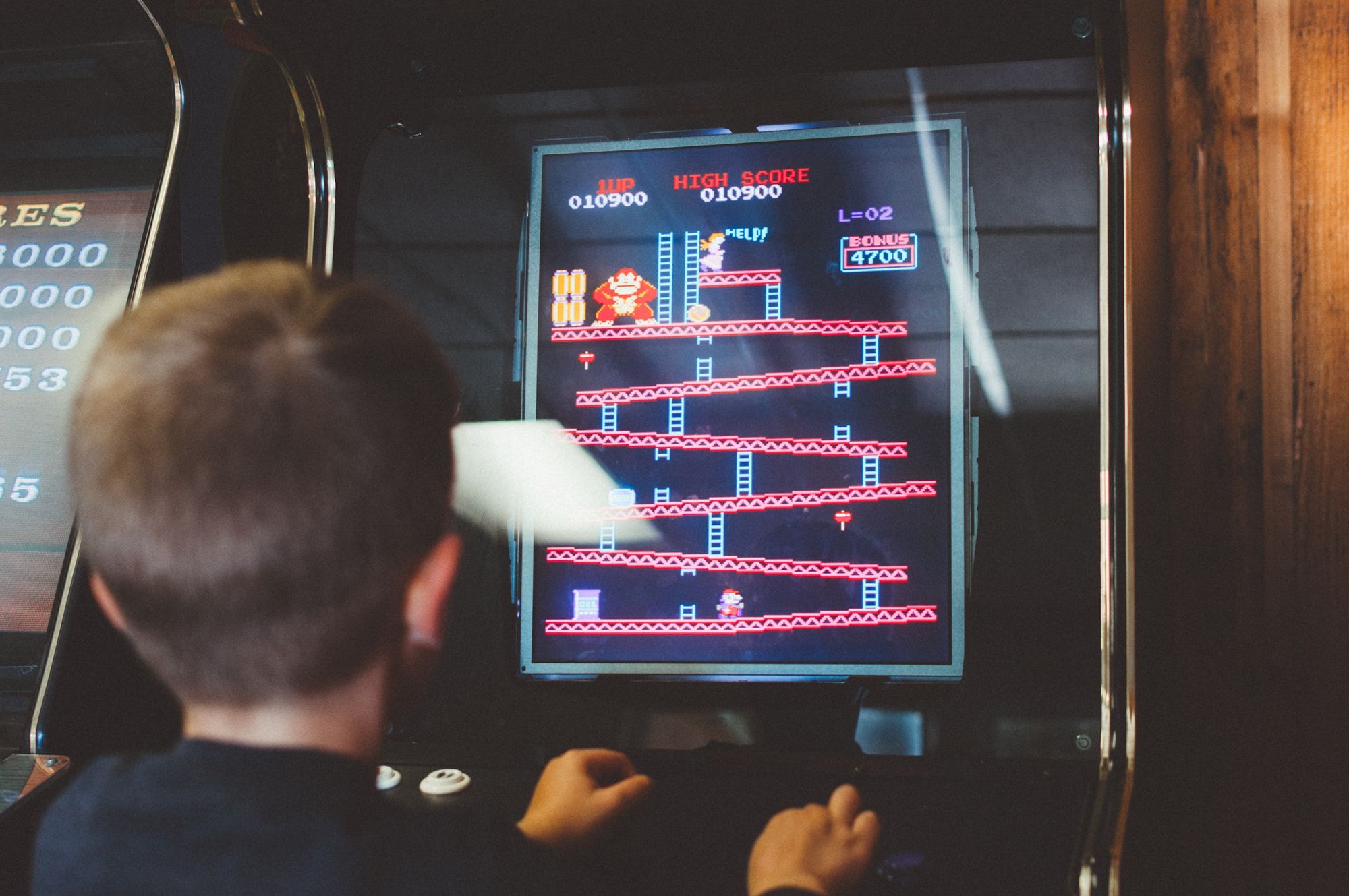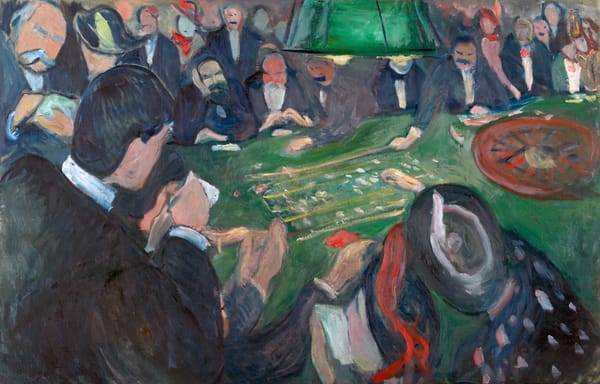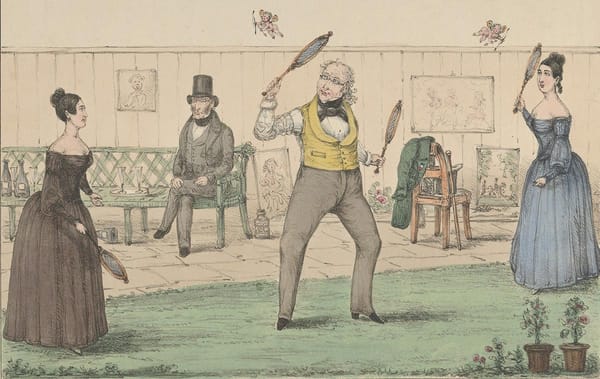Le projet Confoederatio Ludens et le GameLab UNIL EPFL organisent du 2 au 3 mai prochains un colloque en langue anglaise dédié à l’étude des univers vidéoludiques à Lausanne (Suisse). Son titre ? «Leisure electronics and the emergence of video games: Towards a genealogy of ludic practices and computing artifacts». Les propositions de communications peuvent être envoyées jusqu’au 15 janvier 2024. Présentation.
Introduction
This interdisciplinary conference invites abstract and panel propositions on the relationship of early video game history and its material and cultural contexts.
Since the early 1980s, a wide range of objects and activities from different cultural, material, and geographical contexts have been subsumed under the term « video games ». These emerged in and from settings such as universities, electronics clubs, amusement arcades, cafés, restaurants, schools and workplaces. The aim of this conference is to look into the origins of video game culture and encourage research into the ludic practices and artifacts that accompanied this unfolding development. To travel these uncharted areas, we must assemble heterogeneous pieces of knowledge on the history of computers and video games, while also digging for past practices related to programming, tinkering and playing.
This inquiry requires an understanding of local contexts: how did individuals learn to create games? Game development was not a globalised practice as it is presented today, with online tools and tutorials available from almost anywhere in the world. When did we start to see recurring practices, and which ones? How did they spread, and which ones never took off? With this conference, the Confoederatio Ludens project and GameLab UNIL-EPFL invite the scientific community to investigate the emergence of video game cultures, fostering interdisciplinary discussions that encompass aesthetic, material and discursive studies, as well as investigations into the sociology of ludic practices, regional histories, and more.
The (local) electronic roots of video games
Most authors of video games histories have written diverse but significantly overlapping chronologies on «successful» platforms and games. These narratives often find themselves trapped in a history of precursors and tend towards techno-industrial glorification (Blanchet & Montagnon, 2020). Moreover, they carry dominant, ethno- and androcentric discourses (Trépanier-Jobin, 2021). Eventually, they reproduce the apparent self-evidence of video game chronologies based on contemporary definitions, artificially establishing straightforward lineages coherent with their framework (Wolf, 2014; Therrien and Picard, 2016).
Hopefully, academia and journalists today are more aware of these issues and take them into account while conducting their research. In particular, video game studies have been recently driven by an interest in local game histories (Blanchet et al., 2020; Švelch, 2018; Swalwell, 2021), which enables us to deepen our understanding of the genealogy of forms of play (Wade 2016). These initiatives consider video game production and consumption within regional contexts, avoiding nationalistic narratives. They document overlooked heritages, provide a counterweight to discourses dominated by the industry and teleological press coverage, and consider transnational approaches (Navarro-Remesal and Pérez-Latorre, 2021). Genealogical approaches attempt both to reintegrate forgotten elements of video game history, and to reveal the « power relations that led to their erasure in the first place » (Trépanier-Jobin, 2021).
Research in local game histories has indicated that video game cultures emerging in the early 80s in different places were already involved in electronic leisure and playful activities. In the UK, Haddon was probably one of the first to underline the roots of computing in consumer electronics (Haddon 1988). It is commonly accepted that the first home computer was the Altair 8800 (1974), and that it came as a do-it-yourself kit. Its influence was not limited to the US, as this computer was for example imported to the Netherlands, as shown by Veraart (2014). Meanwhile, several chapters of « Hacking Europe » (Alberts and Oldenziel 2014) report on the importance of electronics shops and magazines in Yugoslavia, Poland or Greece to document the early home computer users. Švelch (2018) analyses the particular context of amateur clubs in Czechoslovakia, then under Soviet influence. Moreover, Blanchet and Montagnon (2020) expose how, through their corporate press, retailers of electromechanical amusement devices paved the way to the first imports of video games in France. Furthermore, Swalwell (2021) notes the importance of DIY culture of personal computers and conceived it as part of early video game practices in Australia and New-Zealand.
Cultural context, remediations, and the birth of a culture
Nonetheless, these works addressed the genealogy between electronics and video games only in passing. We suggest making it the focus of the discussion, to deepen our understanding of the following questions: Who were the people experimenting during this era? How did they proceed? How did the different contexts frame practices and artworks? Did leisure electronics prefigure video games? Moreover, we would like to bring together these different approaches and the specific cultural settings they reveal, such as clubs, bar games, arcade rooms, domestic activities, associations, or specialised shops. This means focusing on the roots of « proto-games » (Kirkpatrick, 2021), i.e looking at the first video games, before the globalised interconnectedness of the video game ecosystem as we experience it today. Walking this path implies exploring a proliferation of terms, gestures, contents, and practices through local and highly contextualised approaches.
To get an overview of the various modes of relationship between video games and leisure electronics, we propose to structure the conference around three distinct strands. These three aspects can be explored from a variety of perspectives and academic methods and disciplines, and we welcome contributions from all of them. Some examples include the study of gaming practices, material analysis, content analysis, gender studies, post-colonial studies, media archaeology, discourse analysis, archival studies, and more.
Leisure electronics as a cultural context for the emergence of video games
During the second half of the 20th Century, the development of the electronics industry led, (at least in the Global North) to the massive deployment, circulation and domestication of new materials and energies, such as metal, plastic and electricity. These products of industrial modernity spread along the growth of audiovisual cultures and amateur practices (Maigret, 2015). To what extent did the development of electronic entertainment accompany the adoption of these techniques and materials? Also, to what extent did it contribute to the creation of a playful and technical culture conducive to the production and reception of the first forms of video games? For example, what role have video games played in electronic leisure clubs and the specialised press? Are the games produced in this way nourished by specific imaginaries?
Video games as simulations, remediations and continuities of previous games
What we call « video games » today intersects, mixes or gathers pre-existing ludic forms, whether electromechanical or analogue, such as sports, board games, role-playing games, bar games or educational media. With the help of ancillary disciplines, game studies need to reflect on the coexistence and entanglements of these older ludic forms with the video games that they inspired. For example, is there any relationship between the imagery developed by pinball machines and the first video games? Did pinball machines help shape the narratives developed by the first video games, and if so, how? What about other electromechanical games and the techno-ludic imaginaries of model-making and electronic tinkering? Can we perhaps find practices of electronic tinkering and infrastructural management of model train systems in video games? What about automating text-based games?
The birth of a culture: Have videogames became autonomous from previous practices and cultures?
Once the genealogies between electronic leisure activities and video games are traced and refined, would it be possible to draw on this new level of cultural exchange to establish to what extent, and how video games have emancipated themselves from their (electronic) roots? Some might agree that today’s video games are largely built on cultural codes that have become specifically based on video games. If so, how and when did this happen? From an opposite perspective, would it be possible to highlight the legacy of pre-video games in contemporary creations? For example, should train driving simulation games be seen as a break with the continuity of modelling clubs?
Keynote speakers
Maria Garda (University of Turku) and Alex Wade (School of Education and Social Work – Birmingham City University) will present their respective works on the genealogy and history of video games. Titles will be announced in the coming weeks.
Practical information
- The conference will be held on the campus of the University of Lausanne, on 2 and 3 May 2024.
- Proposals for abstracts should be sent to pierre-yves.hurel@unil.ch by 15 January 2024. They should not exceed 500 words (excluding bibliography). It is not necessary to choose or mention one of the three axes for your abstract. The document must be sent in PDF and in two versions: one anonymised, the other not.
- It is possible to propose a thematic panel made up of three coherent proposals. In this case, only one document should be sent, containing the rationale for the panel and a brief description of the three proposals. The document should not exceed 1000 words and should be sent in PDF and in two versions: one anonymised, the other not.
- If your proposal is accepted, this does not commit you to writing an article for future proceedings. However, you will be asked to submit a 2-page extended abstract that will be publicly available online. You don’t need to expand it until your abstract is accepted.
- The symposium will be organised as a hybrid event: it will be possible to participate and attend two days of remote communications.
Bibliography
- Alberts, Gerard, and Ruth Oldenziel, eds. 2014. Hacking Europe: From Computer Cultures to Demoscenes. History of Computing. London: Springer-Verlag. https://doi.org/10.1007/978-1-4471-5493-8.
- Blanchet, Alexis, and Guillaume Montagnon. 2020. Une histoire du jeu vidéo en France: 1960-1991 : des labos aux chambres d’ados. Houdan: Les Éditions Pix’n Love.
- Elsaesser, Thomas. 2004. ‘The New Film History as Media Archaeology’. Cinémas : revue d’études cinématographiques / Cinémas: Journal of Film Studies 14(2–3): 75–117.
- Haddon, Leslie. 1988. ‘The Home Computer: The Making of a Consumer Electronic’. Science as Culture 1(2): 7–51.
- Keogh, Brendan. 2023. The Videogame Industry Does Not Exist. Cambridge, Massachusetts: The MIT Press. https://mitpress.mit.edu/9780262545402/the-videogame-industry-does-not-exist/ (September 12, 2023).
- Kirkpatrick, Graeme. 2021. ‘“Welcoming All Gods and Embracing All Places”: Computer Games As Constitutively Transcendent of the Local’. In Game History and the Local, Palgrave Games in Context, ed. Melanie Swalwell. Cham: Springer International Publishing, 199–219. https://doi.org/10.1007/978-3-030-66422-0_11 (September 12, 2023).
- Lebailly, Romain. 2020. ‘Les effets locaux des parcours transnationaux : Sega et les représentations du Japon aux États-Unis et en France (1951-2001)’. Les Cahiers Sirice 25(2): 69–76.
- Levy, Steven. 1984. Hackers: Heroes of the Computer Revolution. Anchor Press/Doubleday Garden City, NY.
- Lima, Luciana, Terhi Marttila, Patrícia Gouveia, and Camila Pinto. 2023. ‘Home Computing and Digital Game Piracy in the 1980s in Portugal’. In Proceedings of DiGRA ’23 Conference: Limits and Margins of Games, Sevilla, Spain.
- Maigret, Éric. 2015. Sociologie de La Communication et Des Médias. 3ème. Paris: Armand Colin.
- Navarro-Remesal, Victor, and Óliver Pérez-Latorre, eds. 2021. Perspectives on the European Videogame. Amsterdam University Press. https://www.aup.nl/en/book/9789463726221/perspectives-on-the-european-videogame (September 11, 2023).
- Švelch, Jaroslav. 2018. Gaming the Iron Curtain – How Teenagers and Amateurs in Communist Czechoslovakia Claimed the Medium of Computer Games. Cambridge, Massachusetts: The MIT Press. https://mitpress.mit.edu/books/gaming-iron-curtain (February 10, 2020).
- Swalwell, Melanie, ed. 2021a. Game History and the Local. Palgrave Macmillan. https://www.palgrave.com/gp/book/9783030664213 (August 25, 2021).
- ———. 2021b. Homebrew Gaming and the Beginnings of Vernacular Digitality. MIT Press.
- ———. 2022. ‘Archiving Australian Media Arts: A Project Overview’. Preservation, Digital Technology & Culture 51(4): 155–66.
- Therrien, Carl, and Martin Picard. 2016. ‘Enter the Bit Wars: A Study of Video Game Marketing and Platform Crafting in the Wake of the TurboGrafx-16 Launch’. New Media & Society 18(10): 2323–39.
- Trépanier-Jobin, Gabrielle. 2021. ‘Toward a Foucauldian Genealogy of Video Game (Pre)History’. International Public History 4(1): 25–34.
- Triclot, Mathieu. 2011. Philosophie Des Jeux Vidéo. Paris: Zones.
- Veraart, Frank C. A. 2014. ‘Transnational (Dis)Connection in Localizing Personal Computing in the Netherlands, 1975–1990’. In Hacking Europe: From Computer Cultures to Demoscenes, edited by Gerard Alberts and Ruth Oldenziel, 25–48. History of Computing. London: Springer. https://doi.org/10.1007/978-1-4471-5493-8_2.
- Wade, Alex. 2016. Playback – A Genealogy of 1980s British Videogames. Bloomsbury Academic. https://www.bloomsbury.com/uk/playback-a-genealogy-of-1980s-british-videogames-9781628924862/ (February 10, 2020).
- Wasiak, Patryk. 2014. ‘Playing and Copying: Social Practices of Home Computer Users in Poland during the 1980s’. In Hacking Europe: From Computer Cultures to Demoscenes, Springer, 129–50.
- Wolf, Mark J. P. 2014. ‘Unrepresented and Under-Represented Video Game History’. History of Games International Conference Proceedings. https://www.kinephanos.ca/Revue_files/2014-Wolf.pdf.
Organising committee
- Pierre-Yves Hurel (Program chair, University of Lausanne)
- Yannick Rochat (University of Lausanne)
- Guillaume Guenat (University of Lausanne)
- Sophie Bémelmans (University of Lausanne)
- Loeva La Ragione (University of Lausanne)
- Loïse Bilat (University of Teacher Education Fribourg)
- Fabián Ruz (University of Geneva)
Scientific committee
- Fanny Barnabé (University of Namur)
- Sophie Bémelmans (University of Lausanne)
- Alexis Blanchet (Université Sorbonne Nouvelle)
- Aurelia Brandenburg (Bern University of the Arts)
- Charlotte Courtois (University of Montréal)
- Adrian Demleitner (Bern University of the Arts)
- Bruno Dupont (Katholieke Universiteit Leuven & Vrije Universiteit Brussel)
- Arno Görgen (Bern University of the Arts)
- Guillaume Guenat (University of Lausanne)
- Pierre-Yves Hurel (University of Lausanne)
- Mela Kocher (Zurich University of the Arts)
- Aurore Lüscher (University of Lausanne)
- Addrich Mauch (University of Bern)
- Victor Navarro Remesal (Tecnocampus Upf Barcelona)
- Isaac Pante (University of Lausanne)
- Eugen Pfister (Bern University of the Arts)
- Yannick Rochat (University of Lausanne)
- Loris Rimaz (University of Lausanne)
- Fabián Ruz (University of Geneva)
- Beat Suter (Zurich University of the Arts)
- Magalie Vetter (University of Lausanne)
- Vinciane Zabban (Université Sorbonne Paris Nord)
Informations complémentaires
A propos
Confoederatio Ludens: Swiss History of Games, Play and Game Design 1968-2000.
Lorsqu'on évoque l'histoire canonique du jeu vidéo, on pense généralement à des nations telles que les Etats-Unis ou le Japon. Pour autant, à l'époque comme aujourd'hui, les terres helvétiques ont donné naissance à de nombreuses et riches productions. Débuté le 1er février 2023, le projet Sinergia (FNS) Confoederatio Ludens: Swiss History of Games, Play and Game Design 1968-2000 permettra de mener des recherches transdisciplinaires afin d'étudier l'influence du contexte culturel local sur la création d'œuvres vidéoludiques dès les premiers temps, d’identifier des particularités au sein de ces jeux, et de mieux saisir leur réception par le public.
Page du projet : https://data.snf.ch/grants/grant/209248
Le GameLab UNIL-EPFL
Groupe d’étude sur le jeu vidéo, le GameLab UNIL-EPFL est un regroupement interdisciplinaire de chercheurs et chercheuses de l’Université de Lausanne et de l’EPFL travaillant autour des questions liées au jeu, plus particulièrement au jeu vidéo.
Les recherches portant sur le jeu – sciences du jeu, game studies, play studies, mais aussi platform studies, code studies, software studies, etc. – occupent une place de plus en plus importante dans le paysage académique, à l’UNIL et à l’EPFL comme dans de nombreuses autres universités. Populaire dans toutes les couches de la société, le jeu sous ses diverses déclinaisons (jeu de société, jeu de rôle, jeu vidéo) s’est construit comme une forme d’expression artistique en même temps qu’une industrie désormais bien établie, influente, au chiffre d’affaire conséquent. Le jeu emprunte à de nombreux modes d’expression : écriture et narration, mise en scène, arts graphiques et modélisation 2D/3D, jusqu’à proposer des compétences qui lui sont propres telles l’écriture algorithmique ou la création de mécaniques ludiques (game design).
Photo de Kelly Sikkema sur Unsplash







